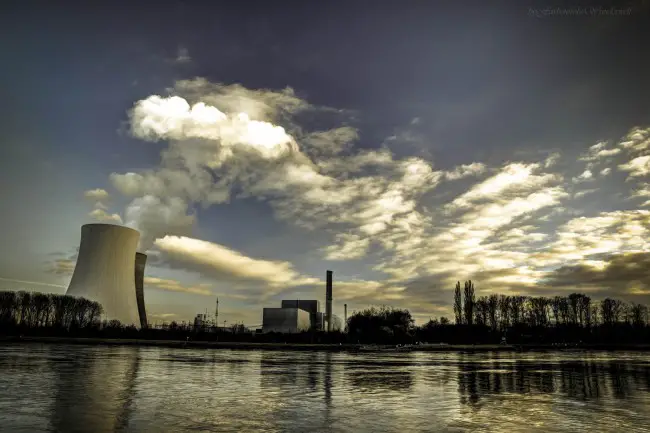
Enthusiasm may have dimmed for a bill to rein in the construction fees that power companies may charge customers for nuclear power plants well before those plants are built (if they are ever built), but not enough to shut down the effort.
In 2006, under pressure from the utility industry, the Legislature passed a bill–and then-Gov. Charlie Crist signed it–enabling power companies to charge customers for expected construction costs of nuclear power plants, or upgrades. Progress Energy and Florida Power and Light (FPL) have both added such itemized charges on customers’ bills every year. FPL services most of Flagler County. Both companies are planning upgrades and construction of nuclear power plants. But the charges for nuclear-power construction have been controversial.
In 2013, FPL and Progress Energy are collecting nearly $300 million from customers through such fees.
Sen. John Legg, R-Lutz, said he would have preferred the measure (SB 1472) now returning to the Senate to have retained the possibility customers could get a refund when future plant plans are scuttled. However, the review benchmarks now in place may be enough to advance the bill, he said.
“This late in the session, seeing the situation over in the House, there are a lot of good provisions, like the various trigger mechanisms to review it,” said Legg, who has carried the bill for the Tampa Bay-area senators backing the measure.
“Sometimes a half a loaf is better than no loaf at all,” he added. “While I’d like to see that refund mechanism stay in there, it may be too late to send something back.”
The House, in the midst of a delaying tactic by Democrats pushing for a health-care bill, voted 104-12 to approve their amended version of the Senate bill on Wednesday.
Democrats in the House, meanwhile, denied that their tactics would prevent any bill from being heard, saying they’d work late into the night, if necessary, to hear more bills.
The changes in the nuclear cost bill establish a series of benchmarks for a utility seeking to build a nuclear power plant to follow in order to impose pre-construction fees. But the amendment also removed a provision that would have required the companies to refund money if they halted their plans.
A group of Tampa Bay-area legislators initially proposed the legislation to target the 2006 law that has allowed power companies to impose fees for plants they intend to build as projects advance through the state and federal regulatory process.
Rep. Mike Fasano, R-New Port Richey, argued the change won’t help rate payers. “What it does is it protect the (power) companies of this state,” he declared.
Energy companies continue to oppose the proposals even with the House change.
Progress Energy Florida is proceeding with plans to build new reactors in Levy County. Florida Power & Light has proposed a project in Miami-Dade County and has noted the 2006 law has helped it complete upgrades to existing nuclear plants that will provide long-term savings for customers. In both cases, original cost projections have continuously been revised significantly upward.
Rep. Jose Felix Diaz, R-Miami, who sponsored the House proposal, said the review process now “has teeth.”
“It makes the energy companies prove that their product is still feasible and reasonable when it comes to cost,” Diaz said.
The process requires the companies to clear set benchmarks over 20 years to impose and maintain the fee. Companies would have to petition the Public Service Commission to impose the fee after a determination of need for a new nuclear power plant is granted. The fee could only cover the cost of obtaining a license while awaiting the license from the Nuclear Regulatory Commission.
Once a license is approved, the company would have to again request the PSC to increase the fees to cover the additional work needed to maintain the license. The PSC, which has looked very favorably on nuclear power and has generally acceded to utility companies’ fee requests (with some decreases), would also have to annually approve materials and equipment purchases that exceed 1 percent of the total project cost. A decade after the license is granted, the PSC would have to determine if the utility remains intent on building the plant.
The pre-construction costs would be halted if the PSC determines the plant isn’t advancing. But there would be no refund to customers. A similar review would come at the 20 year mark.
–News Service of Florida and FlaglerLive






























Sherry Epley says
An increase in our electric bills “just in case” the power companies want to build dangerous, highly polluting nuclear power plants. What is WRONG with this picture!? Corruption abounds again!
This is the Sunshine state. . . We should be investing in clean, efficient solar power. The reason we are not is because our “capitalist” can’t figure out a way to charge for sunshine. It’s all about PROFIT. . . not about the customer. . . not about the environment. . . not about saving money!